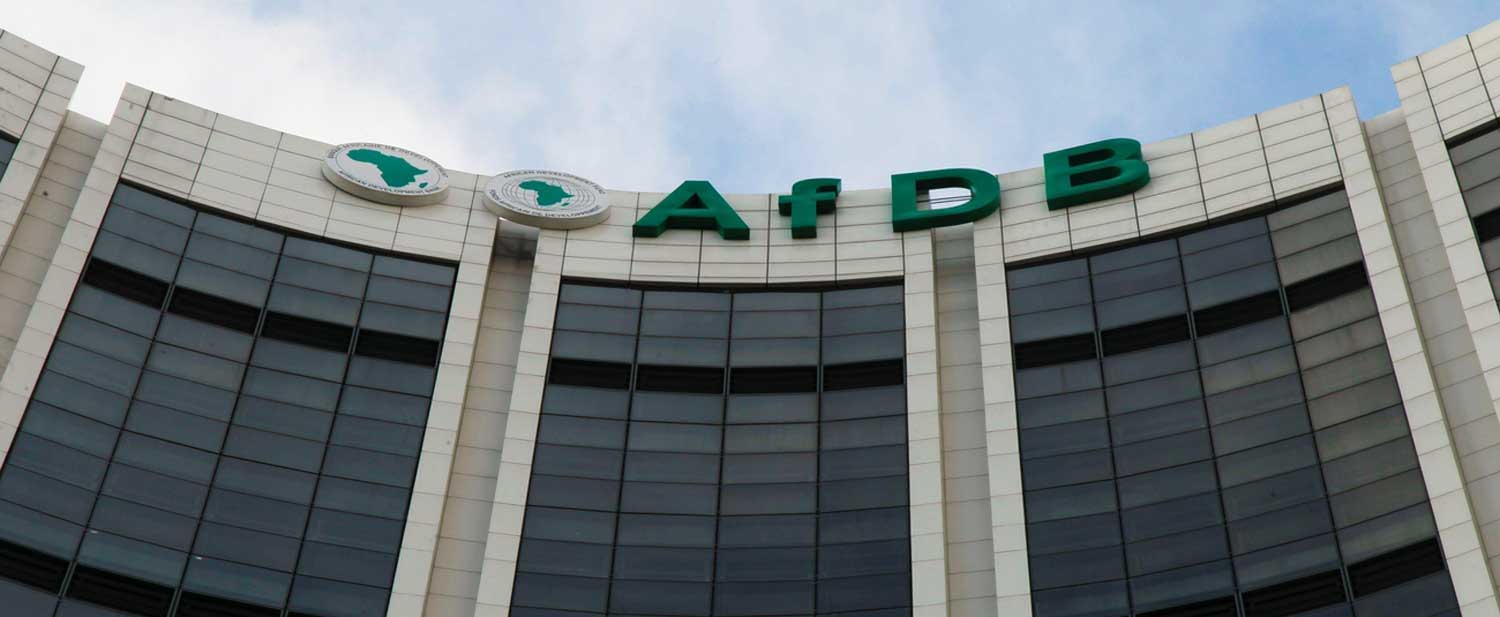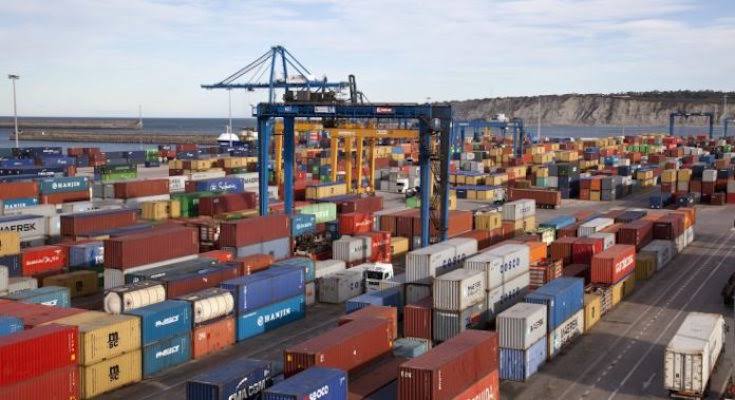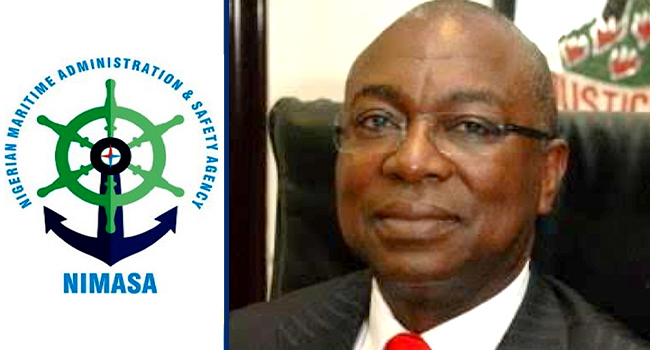Business
Free Zone Inspection: House Committee on Commerce tasks FG to divests equity to private sectors
By Matthew Denis, Abuja
Members of the House Committee on Commerce carrying out their Mid-Term Inspections of projects at Free Zones across the country has tasked the Federal Government to divests more equity to the private sectors to boosts productivity.
Hon. Richard Gbande, Deputy Chairman of the committee made the disclosure an inspection of the free zones across the country concluded a two-day tour of the Kano Free Trade Zone yesterday.
Gbande said, “The zone was lucrative going by the presence of 75 enterprises functioning night and day to increase production for the country’s highly competitive markets.
“We are sure production and competition among the enterprises in the zone would increase significantly if the Federal Government finally divests its equity to the private sector as planned. Doing so will help open the space more for job creation.”
He expressed satisfaction on how the NEPZA had so managed the special economic ecosystem thereby describing it as a vital economic gateway that should fast track the industrialisation of the Northern region.
Speaking at the end of the tour in Calabar, Hajia Zainab Aliyu, NEPZA’s Director of Monitoring & Compliance who represented her boss, Prof. Adesoji Adesugba expressed satisfaction with the level of projects execution across the four zones, adding that the Federal Government had always ensured value-for-money in the execution of its contracts.
She stressed that the approval for the projects’ inspection tours indicated government priority toward adequate provision of infrastructure in the free trade zones and Prof. Adesoji Adesugba led-management relentless commitment to the interpretation of President Muhammadu Buhari’s policy for a profitable and competitive zone scheme.
“As part of the statutory responsibility of NEPZA as provided in Section 4 of the Authority’s Act 63 of 1992 is the provision that ensures that all zones provide some of the basic infrastructure. We are also obliged to constantly monitor and evaluate both new and old infrastructure.
“The reasons for these monitoring and evaluation exercises were to ensure the right quality of materials were used and the the right quality of jobs are done, just as we also checked the percentage of work done in line with the amount assigned for the project.
“To this end, the Managing Director, Prof. Adesoji Adesugba decided to set up this committee to access all the projects that have been earmarked from the period he assumed leadership of the Authority.
“The Authority has, however, decided to carry out the task jointly with our supervising Ministry, which is the Ministry of Industry, Trade and Investment. So far, we were encouraged by the progress of executions.”
Also Speaking, Mr Martins Odeomenem, Director of Procurement who led the team members from the Ministry of Industry, Trade & Investment, described NEPZA as a serious agency of government that had always displayed uprightness in the conduct of its affairs.
Odeomenem explained that the ministry was, however, mostly concerned with those projects approved through the Ministerial Tender Board, adding that most of projects under the above category had been completed.
“It is not all about awarding contracts and executing contracts. There is also the need for every office that has the duty of awarding contracts to know that government is seriously after value-for-money.
“The inspections were aimed at ascertaining if the contracts the government awarded within the period under review are achieving the purpose for which they were awarded and executed. This is the essence of our assignment.
“I am fully aware that NEPZA is a serious establishment that abhors shoddy execution of its projects because of the strategic nature of the free zones in attracting foreign investment. We have gone around and I can say with all sense of responsibility that we are satisfied with what we have met on ground so far.”
The committee is, however, expected to submit a detailed technical report of its evaluation within 21days.
The Joint Projects Monitoring Committee that comprised officials from the Ministry of Industry, Trade & Investment and the Nigeria Export Processing Zones Authority (NEPZA) has rounded-off scheduled inspections of 112 approved projects for the Authority.
These projects captured under the NEPZA Tender Board of 2017-2021direct Federal Executive Council approval and the Ministerial Tender Board of Capital Projects are located at Calabar Free Trade Zone (CFTZ), Kano Free Trade Zones (KFTZ) and the newly approved Lagos and Kwara Special Economic Zones respectively.
Out of the 112 ongoing projects, a total of 76 have been completed with the CFTZ accounting for 28; KFTZ 38; Lekki SEZ 5; and Ilorin SEZ 5 while others are at different levels of completion.
Business
AfDB to partner Ogun on Special Agro-industrial Processing Zone

By Omobolaji Adekunle, Abeokuta
The African Development Bank (AfDB) has described Ogun State as a powerful ally in its development programmes and project implementation.
The Special Adviser to the President of the Bank on Industrialization, Professor Banji Oyelaran-Oyeyinka, made the assertion in an interview at the weekend, after a meeting with Governor Dapo Abiodun at the Governor’s Office, Oke-Mosan, Abeokuta.
He said the visit was to discuss One Agenda, Item 18, that focuses on the development of the Special Agro Industrial Processing Zone and to clarify the subsidiary loan agreement between the state and the Federal Government.
“Today, we have clarity on how best to develop the hub, including the Agricultural Transformation Centre, to ensure that the significant Zone arrangements see the light of the day,” the AFDB official said.
Also speaking, Commissioner for Agriculture, Mr. Bolu Owotomo said the state stands to gain from having many Agricultural Transformation Centres as they would feed the Special Agro Industrial Processing Zone with raw materials.
He said his ministry was currently distributing inputs to farmers as the farming season approaches to enable them to have bountiful harvest and improve their livelihood.
Owotomo also revealed that capacity building was being intensified by training Extension Officers to enlighten small holder farmers on how best to use the inputs given to them, calling on farmers to follow climate smart farming to plant for good harvest.
In a related development, the Standard Organisation of Nigeria (SON) said it has taken steps to guarantee the safety of trucks conveying Compressed Natural Gas (CNG) in the country.
This is in response to the explosion that occurred in Abeokuta last weekend.
The Director General of the Organisation, Dr. Ifeanyi Chukwunoso Okeke disclosed this on Thursday after a meeting with Governor Abiodun at the Governor’s Office, Oke-Mosan, Abeokuta.
The Director General, who described the incident as unfortunate, said CNG remains a clean and cheapest fuel that is environmentally friendly and an alternative to other traditional petroleum products.
He said, “I am here in respect to the incident that occurred last Saturday. I am here to let the governor know that we now have safety standards that relate to the CNG operations, which President Bola Tinubu will launch on May 29 this year. As you all know, the President has directed that vehicles will now run on CNG, and CNG is the alternative to the traditional fuel, and it is environment friendly.
“I am also here to inform the governor that we now have two standards that have also been released and the standards will help us in ensuring that there is safety in the operations of CNG in the country.”
While sympathising with the family who lost their loved one and those who lost their means of livelihood, Dr. Okeke said his agency would look into the immediate and remote cause of the accident with a view to proffering a solution.
He noted that the federal government was committed to the use of the Compressed Natural Gas as an alternative to drive the country’s economy.
“It is a one off incident and we are going to look at what led to it and come up with measures to ensure that going forward, the CNG operations will be safe for all and ensure that the public is confident in its use,” he said.
Business
Shippers’ Council to clear 616 containers from Lagos ports


By Seun Ibiyemi
The Nigerian Shippers’ Council (NSC) says it is taking immediate measures to remove 616 long-standing export containers trapped in Lagos ports.
The Executive Secretary, NSC, Mr Pius Akutah, said this when his team visited the APM Terminal Complex in Apapa, Lagos, on Friday.
He expressed concern over the growing number of abandoned export containers due to non-compliance with regulatory guidelines.
Akutah said there were plans to engage stakeholders to address the issue while emphasising the importance of promoting ease of documentation for exporters.
“The council needs to quickly bring the service providers, regulators, government agencies and exporters together on one table to discuss and discover where the problem lies.
“We would also take up issues of awareness creation to sensitise exporters on how to comply with the export procedure.
“NSC will work towards promoting ease of documentation by exporters.
“The council needs to do that very quickly because the present situation is not helping the economy, especially as the government is trying to promote exports to earn scarce dollars,” Akutah said.
Akutah emphasised the need to put a mechanism in place to stop export containers that had not completed the necessary documentation from entering the port to avoid the pilling of overtime cargo.
Earlier, Government Relations Manager at APM Terminals, Kayode Daniel said that 1,940 containers had been in Apapa Port between zero day and 10 days, adding that 1,524 containers had stayed between 11 days and 20 days.
Daniel said that 757 containers had stayed between 21 days and 30 days, while 616 had stayed between 31 days and over two years, noting that this classified them as abandoned export containers.
He said that APM Terminals had been pushing for the evacuation of the trapped export containers and had received a commitment from shipping lines.
According to him, these include Maersk, CMA, CGA and Zim to move about 2,752 export containers out of the port in the next five days.
Daniel said that the inability of some exporters to complete the processes required for export containers to leave the port was creating operational bottlenecks for the terminal operator.
This, he noted, was by way of multiple handling of export containers.
Daniel said that exporters had been complaining of ineffective export procedures.
“The export procedures are not moving fast; not knowing the technicalities of their action or inaction because Customs will not authorise the loading of an export without proper documentation.
“There is an established process that is clearly defined by government agencies, but some exporters are not complying with it strictly,” he added.
The terminal manager, APM Terminals, Mr Steen Knudsen, said that technically, export containers were not supposed to stay within the port terminal for more than seven days, adding that all shipping lines come to Apapa on a weekly frequency.
Knudsen said that the terminal operator could not mandate the shipping line to load the container as it was an arrangement strictly between the exporter, Customs and the shipping line.
According to him, most of these export containers that arrive at the port were ‘good to go’ but it is only when they get to the port that Customs and other authorities will discover some missing elements.
He said that discovering the missing element by officials would enable the shipping line not to load the containers.
Knudsen said that the service providers, Shippers Council, Customs, Nigerian Ports Authority and other players need to work together to improve the export process in Nigerian ports.
Also contributing, the General Manager Legal of APM terminal, Mrs Chinenye Deinde, said there was a need to critically examine the export value chain to identify the source of the problem.
She said that the clearance needed for export was not only regulatory by the government, adding that shippers also need to pay the freight for the shipping line to lift the container.
Deinde said that the business agreement that the exporter enters into with the shipping line made it mandatory for the shipping company to lift the export boxes if only the exporter complies with all the trade guidelines.
Business
NIMASA urges investors to explore economic potentials of North East


By Rauf Oyewole, Bauchi
The Nigeria Maritime Administration and Safety Agency (NIMASA) has wooed private sector players to take advantage of the economic potential of the North East region cutting across fishing, aquaculture, logistics transportation, and tourism.
The Director-General of the Agency, Dr. Dayo Mobereola, while speaking in Bauchi on Sunday during the ongoing North East Trade Fair, explained that the blue economy of the region is yet to be tapped while most of the youth in the region are unemployed which he said is fueling insecurity.
Speaking on a topic, “Harnessing the Blue Economy Potential for Entrepreneurial Development: A Panacea for Youth Restiveness,” Mobereola said that the subject of youth restiveness in Nigeria is alarming particularly in the North East and also across the country. He said that acts of violence, gruesome killings, hostage- taking, cultism, etc are some of the social vices that have characterised the region.
He said, “Youth restiveness in this region has taken political, religious, and economic dimensions, and as future leaders if this frond is not urgently checked it will spell doom for the Nigerian state. The youths of any given state are the engine of development, therefore, a society with educated, disciplined, well focused, and law-abiding youth will be heading for greatness but regrettably, this is not the situation in the region where fear and insecurity has become the order of the day.
“It is imperative that in order to bring this situation under control, there is need to realign entrepreneurial development to reflect the interest of Nigerian youths and also the need for government, organisations, stakeholders, and able individuals to promote and support entrepreneurship, hence in the heart of this are the demands to engage and empower our youth meaningfully.
“The blue economy offers a unique avenue to drive entrepreneurship, wealth creation and job opportunities in the region, paving the way for sustainable economic development and significantly alleviating youth restiveness,” he said.
Also speaking, the President of the Chamber of Commerce and Mining and Agriculture and Industry, Abdul Usman said that the is blessed with agriculture potential and called on major stakeholders to invest in agric. He commended NIMASA for its interest in the entrepreneurship potential of the region.
-
capital market2 years ago
Rt.briscoe, FBNH, Others halts negative performance of stock market
-
Finance3 months ago
Court orders Sen. Victor Umeh to repay N136m bank debt to AMCON
-



 Abuja Update2 months ago
Abuja Update2 months agoUNDP, FG partnership needed to achieve inclusion, equity- Minister
-
Abuja Update1 month ago
Banks drive stock market performance with N147bn gain
-



 Business2 weeks ago
Business2 weeks agoTingo Group unveils Tingo Electric, Tingo Cola drink at Lagos launch
-



 Health3 weeks ago
Health3 weeks agoCapacity training will reduce migration of health workers- NPHCDA
-
News4 months ago
Oil thieves sponsoring malicious media campaign against Navy – Spokesman
-



 Infotech1 month ago
Infotech1 month agoWorld Backup Day: NITDA urges Nigerians to ensure backup of data




